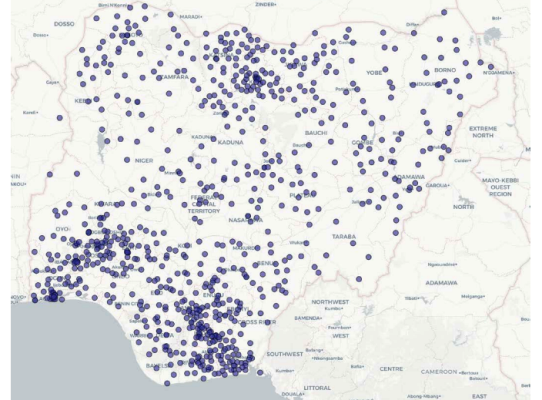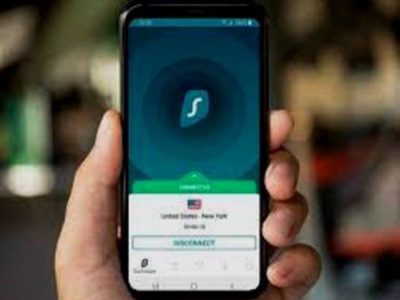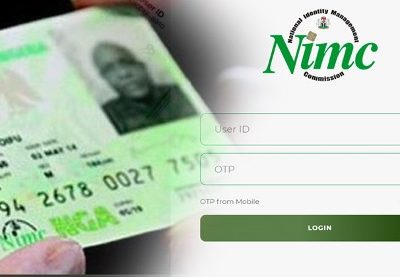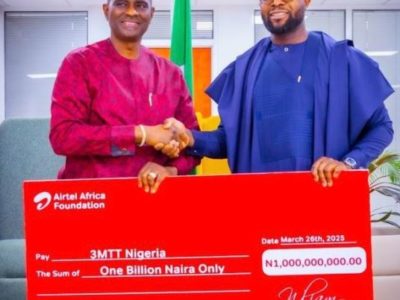Dr. ‘Bosun Tijani, Nigeria’s Minister of Communications, Innovation, and Digital Economy, has unveiled ‘Project 774 LG Connectivity,’ marking a pivotal moment in the nation’s quest to bridge the digital divide. The initiative aims to enhance internet accessibility by linking all 774 Local Government Secretariats.
RELATED: Nigeria to connect all 774 LGAs to internet by 2022
However, skepticism looms regarding its feasibility, considering previous unsuccessful government endeavors in this regard.
ALSO READ: Edo State partners with Geniserve to connect LGAs with fibre optic cables
Project 774 LG Connectivity in a capsule
According to the government’s official blueprint: Project 774 LG Connectivity is designed to address limited internet and digital access by connecting all 774 Local Government secretariats across Nigeria to the internet.
This ambitious project, which will be co-anchored by Nigerian Communications Satellite Limited and Galaxy Backbone, under the supervision of the Federal Ministry of Communications, Innovation & Digital Economy, is aligned with President Bola Ahmed Tinubu’s Renewed Hope Agenda and the ministry’s strategic blueprint.
The overarching goal of the project is to foster inclusive development and access to digital public infrastructure in government offices located all over Nigeria, including the most remote areas of the country that may have been previously underserved or unserved.
But the announcement has stirred extensive discussions and debates among stakeholders, evident from the varied reactions of social media users particularly the LinkedIn page of ‘Dr. Bosun Tijani.‘
Lofty project but isolated from the realities on the ground
Egomaron Jegede, PMP, DCE, CSM, expressed his support saying, “Glad to see this work we supported to plan (from the NNBP 2020-2025 Presidential committee) taking great strides Dr. ‘Bosun Tijani. Wishing you much success!”
However, McDonald Onyema MBA, ACCA, voiced concerns, stating, “This is a lofty project and really thoughtful however it seems very isolated from the realities on the ground… Let the process be private sector-driven.”
Critics point out challenges such as the lack of reliable power supply in many areas, which poses a significant obstacle to maintaining internet connectivity. Without addressing fundamental infrastructure issues like electricity access, the success of ‘Project 774 LG Connectivity’ may be hindered.
Ida Emmanuel on Linkdln added, “No sustainability in Nigeria.”
Kelechi Chiom raised a pertinent question, asking, “How do you achieve this with 24/7 electricity? Why can’t we fix the power problem in our country?”
Moreover, questions arise about the government’s capacity to effectively manage and sustain such a large-scale project.
Also, there are doubts about local governments’ capacity to effectively maintain and use internet infrastructure, given their past lack of investment in technology and digital literacy programs.
Resonating pronouncements and disappointments
For many critics, the project merely resonates earlier failed promises by past administrations.
“It is the same sing-song to keep people busy with ambitious irrelevance,” said Lagos based CEO of an ISP who requested not to be named.
As recent as 2020, then Minister for Budget and National Planning, Udo Udoma disclosed an ambitious plan by government to deliver internet connectivity to all the 774 local government areas in Nigeria by 2022. It never happened and underscores the skepticisms over the new pronouncement.
Project prioritizes digital infrastructure development and could foster inclusive growth
Despite these challenges, ‘Project 774 LG Connectivity’ represents a commendable effort by the Nigerian government to prioritize digital infrastructure development and foster inclusive growth. However, it is imperative for the Minister to heed the concerns raised by stakeholders and adopt a pragmatic approach to implementation.
David Meek Jah emphasized the importance of careful planning, stating, “The project is a bold step, and it needs real thinking for it to be a success… If this project is going to be approved by the FEC, it will be the largest manufacturing enabler in the history of Nigeria and it might just lead to an economic transformation.”
Another user, Adesegun Adeyemo CCISO CISSP highlighted the need for creative solutions, “Hon. Minister sir, some of these LG HQs aren’t connected to the national grid. Powering them on a diesel generator will amount to a cost that outweighs the benefits. Having a cluster of LGAs may be good for a start, especially for LGs not connected to the grid.”
Success rests on cooperation, innovation, and inclusiveness
By leveraging the expertise and resources of various stakeholders, addressing infrastructure gaps, and implementing effective monitoring systems can enable Nigeria to make substantial progress in achieving its digital transformation goals.
Some stakeholders want the federal government to have a bottom-up approach to implementing the initiative to make it more practicable. “Government should work with state governments and local government communities that already have something on ground to allow for that sense of ownership to exist so that it becomes sustainable in the long term. Edo State, for in stance, has something already going ion that direction and only to collaborate with the federal government to have a more robust internet presence in all its local government areas,” said one of them.
In conclusion, Project 774 LG Connectivity’ has the capacity to transform Nigeria’s digital environment and create new prospects for economic growth and social empowerment. However, its success depends on overcoming existing challenges and adopting a comprehensive approach to digital inclusion. As Nigeria embarks on this journey towards a more interconnected future, it is vital to prioritize cooperation, innovation, and inclusiveness in order to genuinely bridge the digital gap.































